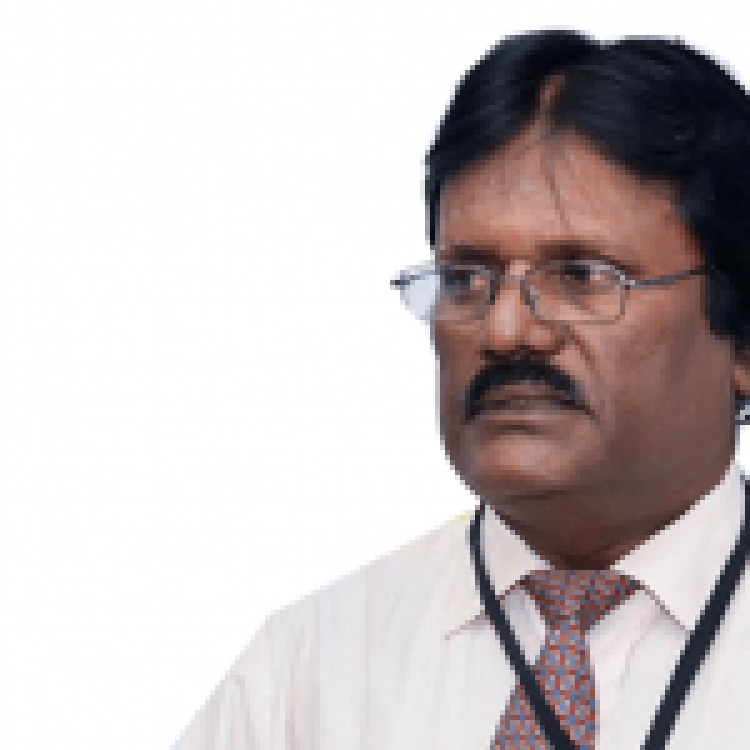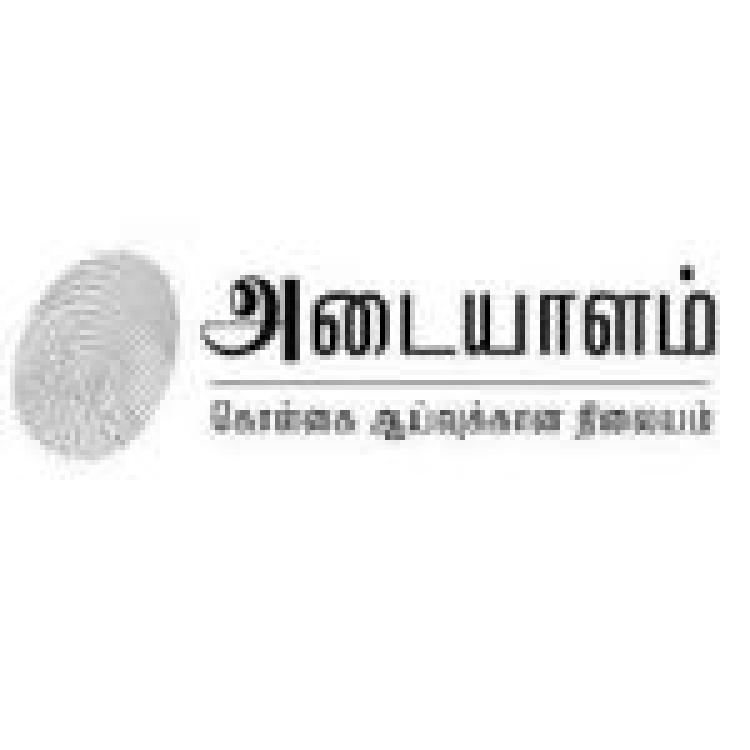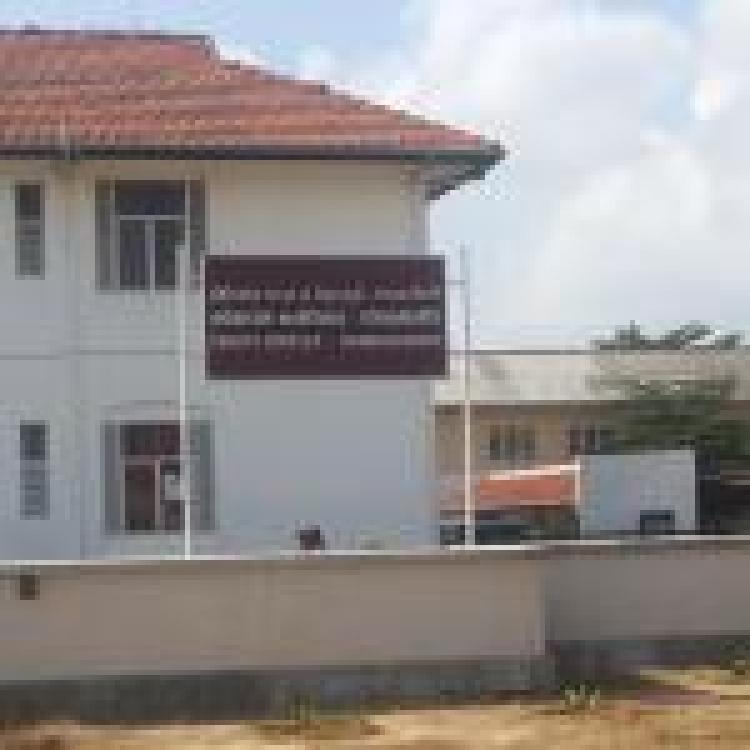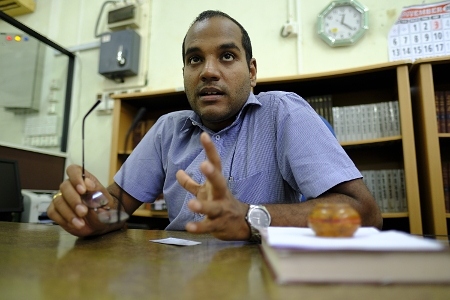
Pressure from the Sri Lankan military has led to the University of Jaffna barring the head of its law department from engaging in private practice, after he took up a public interest habeas corpus case into the 1996 disappearance of more than two dozen Tamil youth.
On August 21, 2019, the military sent a letter to the University Grants Commission (UGC) asking whether Kumaravadivel Guruparan, Senior Lecturer and Head of the Department of Law at Jaffna University, had permission to engage in private practise. Acting swiftly, the UGC that very same day forwarded the letter to Jaffna University. Shortly thereafter, on September 5, the UGC passed a memo barring Guruparan from private practice. This was confirmed in a UGC decision on September 19th. The UGC forwarded their decision to Jaffna University on September 27 but it was only received October 15, due to a non-academic strike at the university. Yesterday, in their first official meeting since receiving the letter, the Jaffna University Council agreed to instruct Guruparan to act according to the UGC circular.
Guruparan began facing harassment by the military in relation to his representation of victims in the Navatkuli Disappearances habeas corpus inquiry earlier this year. On August 1, 2019, Sinhala speaking men dressed in civil uniform photographed the Tamil lawyers in the courtroom.
Just days after, three TID (Terrorism Investigation Division) officials visited the Jaffna office of the Adayaalam Centre for Policy Research (ACPR), a human rights think tank where Guruparan is the executive director. The letter from the military to the UGC came shortly after these incidents.
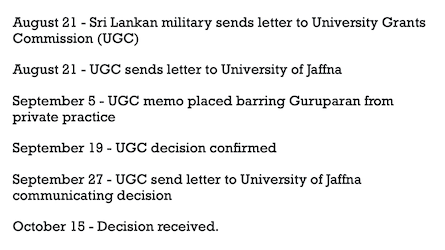
The decision has sparked outcry across Sri Lanka, with many criticising the politicised nature of the decision and the ongoing military interference in Sri Lanka’s academic institutions.
Guruparan is not the first academic to face disciplinary action from Jaffna university after pressure from the military. Earlier this year, Professor Ratnam Vigneswaran, then-Vice Chancellor of Jaffna University, was dismissed on “national security” grounds, which reportedly came after Sri Lankan military intelligence complained to the UGC over “pro-LTTE student activity”.
“The UGC must conduct an inquiry, interdict me and issue a charge sheet,” he told the Daily Mirror last month. “They can’t just dismiss me from work for no reason.”
To date, no further information on his dismissal has been provided.

